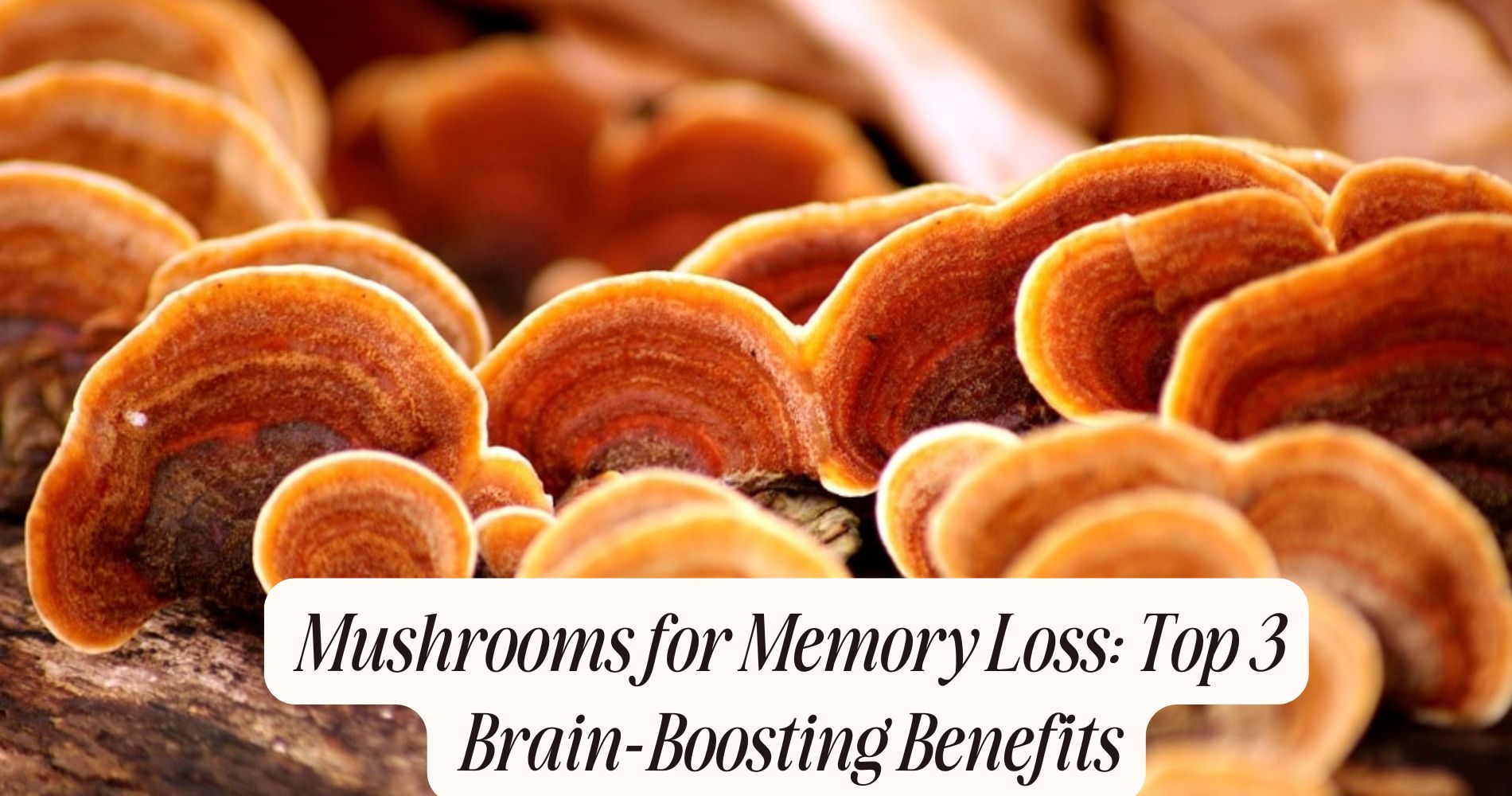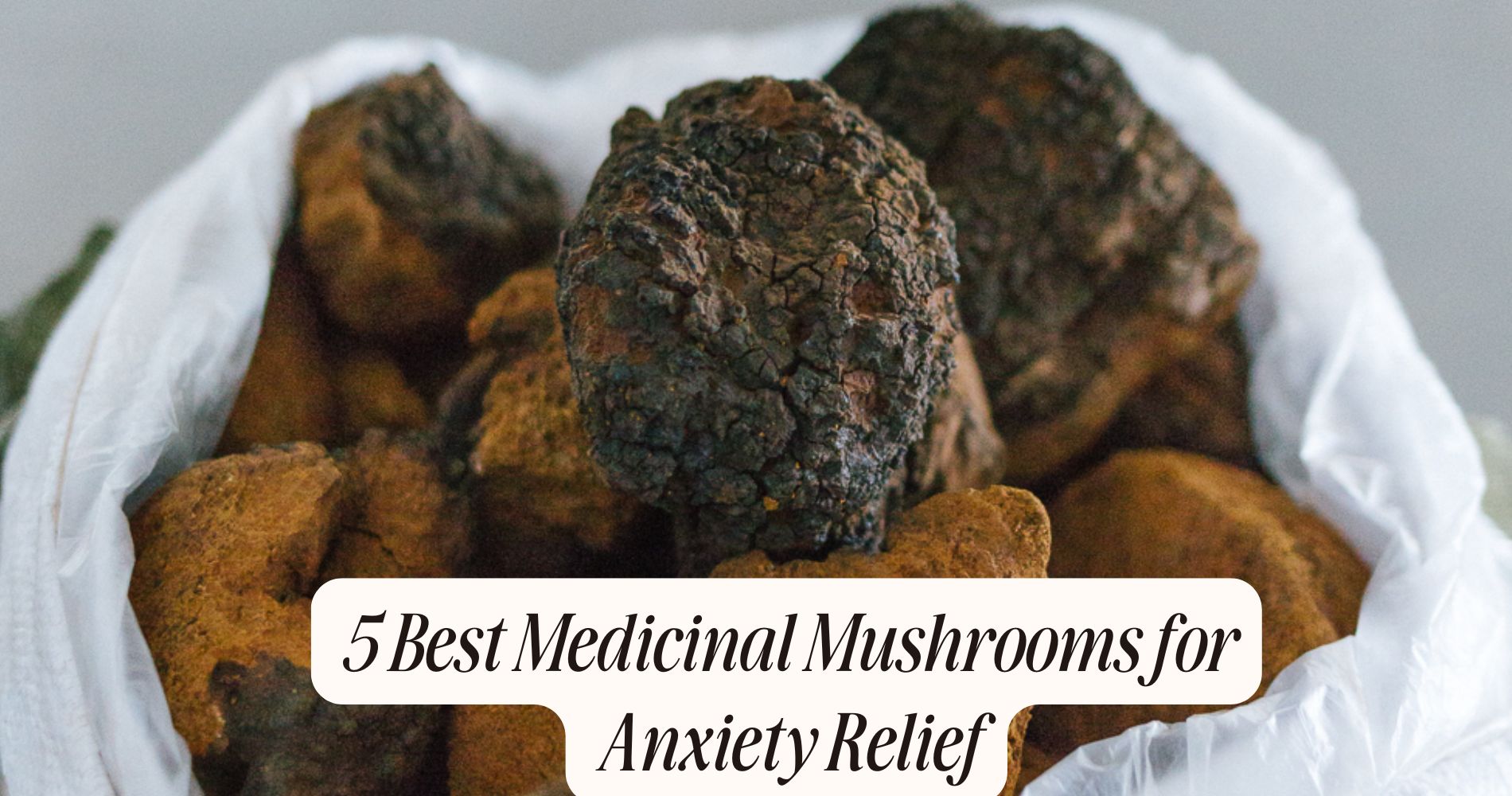
Mushrooms for Memory Loss: Top 3 Brain-Boosting Benefits
Neuroprotective Properties of Mushrooms
Mushrooms have long been celebrated for their potential health benefits, and recent studies show they possess remarkable neuroprotective properties that may help combat memory loss. Various mushroom varieties, such as lion's mane and cordyceps, have gained attention for their ability to support brain health.

Research indicates that compounds found in these mushrooms can stimulate the production of nerve growth factor (NGF), a protein essential for the growth, maintenance, and survival of neurons.
Incorporating these mushroom varieties into your diet could enhance cognitive function and potentially slow down age-related decline. For instance, lion's mane mushrooms are noted for their ability to encourage neurogenesis, which is the formation of new neurons in the brain. This process is vital for maintaining memory and cognitive skills as you age.
Furthermore, some studies suggest that certain polysaccharides and antioxidants in mushrooms may reduce oxidative stress and inflammation, which are both linked to neurodegenerative diseases.
Cognitive Enhancement Through Nutrition
Harnessing the power of nutrition can markedly enhance cognitive function and overall brain health. By focusing on foods rich in nutrient density, you can provide your brain with the essential vitamins and minerals it needs to thrive. Nutrient-dense foods, such as leafy greens, fatty fish, nuts, and mushrooms, are packed with antioxidants, omega-3 fatty acids, and B vitamins that support ideal brain performance.

For instance, omega-3 fatty acids found in fish like salmon are critical for maintaining the structure of brain cells and improving communication between them. B vitamins, on the other hand, play a significant role in energy production and neurotransmitter synthesis, both of which are necessary for cognitive function.
Incorporating mushrooms into your diet can also boost brain health; their unique compounds, like ergothioneine, may help protect against oxidative stress.
To maximize cognitive enhancement, aim for a balanced diet filled with these nutrient-dense foods. This approach not only supports your current cognitive abilities but may also contribute to long-term brain health, helping you stay sharp as you age.
Make conscious food choices, and you'll be giving your brain the best chance to perform at its peak.
Reducing Inflammation for Better Memory
Inflammation in the body can greatly impact memory and cognitive function. Chronic inflammation is linked to neurodegenerative diseases and may hinder your brain's ability to form new memories.
Fortunately, certain mushroom varieties can help reduce inflammation and support brain health. Mushrooms like lion's mane and reishi contain bioactive compounds that modulate inflammation mechanisms.

For instance, lion's mane is known to stimulate nerve growth factor production, which can improve neuronal health and mitigate inflammation. Reishi, on the other hand, has potent anti-inflammatory properties that can reduce cytokine levels, thereby lowering inflammation throughout the body.
Boost Your Brain Naturally with Well Gummies SUPER MUSHROOM GUMMIES
Want an easy way to harness the cognitive benefits of mushrooms for memory loss? Well Gummies SUPER MUSHROOM GUMMIES are packed with ten functional mushrooms designed to support brain health, enhance focus, and improve mental clarity.
These vegan gummies offer a delicious wild berry flavor, making them as enjoyable as your favorite candy, without the jitters or crashes. Convenient and effective, they’re the perfect addition to your routine to help keep your mind sharp and your energy balanced. Try Well Gummies today and feel the difference!
Frequently Asked Questions
Can Mushrooms Be Consumed Daily for Memory Benefits?
Yes, you can consume mushrooms daily for cognitive enhancement. Regular intake may support memory function and overall brain health. Just make certain you choose a variety rich in beneficial compounds to maximize these potential benefits.
Are There Specific Mushroom Types That Are Most Effective?
When considering specific mushrooms, Lion's Mane shows promise for cognitive enhancement, while Reishi benefits stress reduction. Chaga extract supports overall health, and ongoing psilocybin research indicates potential for mental clarity and focus improvements.
How Do I Incorporate Mushrooms Into My Diet?
You can easily incorporate mushrooms into your diet by trying various mushroom recipes. Sauté them, add them to soups, or roast them. Experiment with different cooking methods to discover your favorite flavors and textures.
Are There Any Side Effects of Consuming Medicinal Mushrooms?
Yes, consuming medicinal mushrooms can cause side effects, including potential allergies. While they offer numerous medicinal properties, it's crucial to monitor your body's reaction and consult a healthcare professional if you experience any adverse effects.
Can Mushrooms Interact With Medications for Memory Loss?
Mushroom interactions can occur with memory medications, potentially altering their effectiveness. It's essential to consult your healthcare provider before combining them to guarantee safety and avoid any adverse effects on your treatment regimen.
Conclusion
Incorporating mushrooms into your diet can greatly support memory and overall brain health. Their neuroprotective properties safeguard your neurons, while the cognitive enhancement from their nutritional compounds boosts mental performance. Additionally, their anti-inflammatory effects help reduce the risk of memory loss. By embracing these brain-boosting fungi, you're not just enjoying a delicious ingredient but also actively nurturing your cognitive function and enhancing your memory for a sharper mind.




